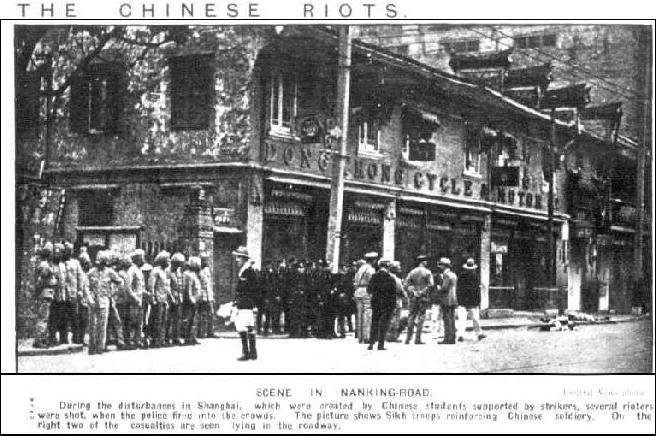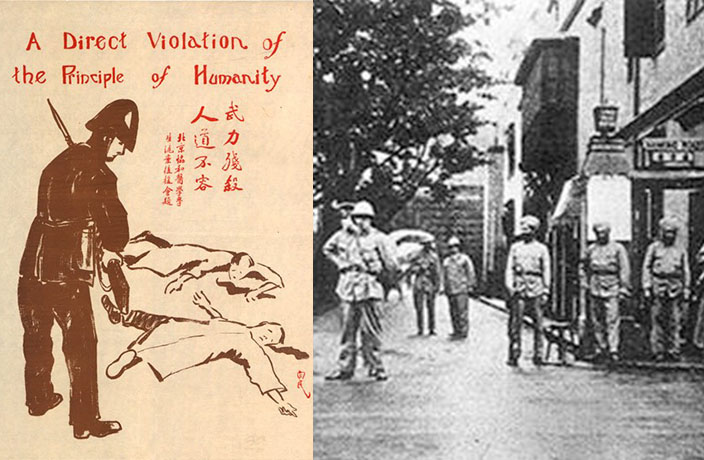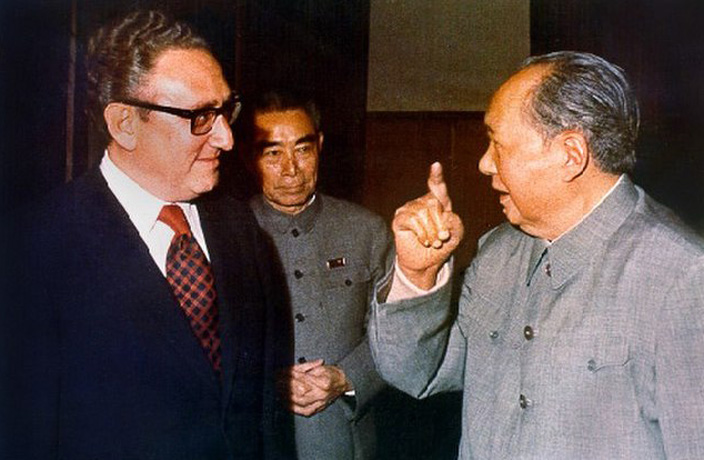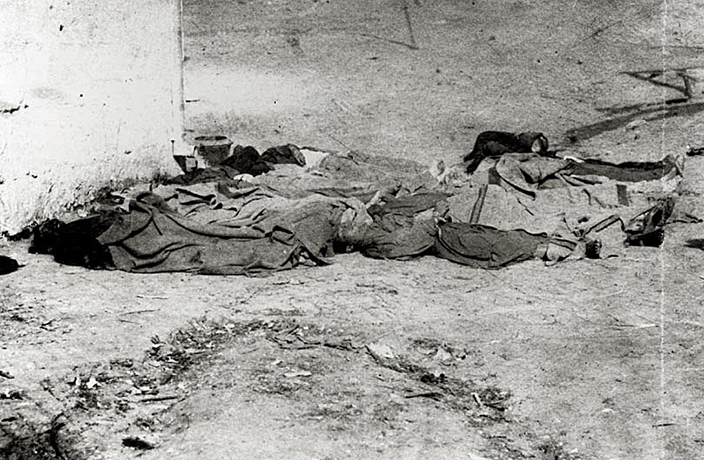On the morning of May 30, 1925 Shanghai Municipal Police arrested 15 ringleaders of Chinese student protests against foreign-run industries and their treatment of the native workforce.
Sun Yat-sen had died in March, leaving the public grieving. Chiang Kai-shek and the Kuomintang had taken advantage of this outpouring of sentiment to further their pro-China, anti-imperialist agenda.
Simultaneously, the Chinese Communist Party had been stirring up Shanghai workers unhappy with dangerous working conditions and their foreign bosses.
Tensions had been cranked up for a fortnight, after a striking worker at the Japanese run No.8 Mill named Ku Chen-Hung had been shot by a Japanese foreman.
 A contemporary news report in the Adelaide Chronicle
A contemporary news report in the Adelaide Chronicle
By the early afternoon of the 30th, a huge crowd had amassed outside the International Settlement police station the arrested protesters were being held in, demanding their release.
With only a skeleton staff of a dozen or so officers on duty, a picket of police was set up to prevent demonstrators entering the station. The mob soon turned violent, with cries of “Kill the foreigners!” being heard.
Inspector Edward Everson, station commander and the highest ranking officer on the scene (police commissioner K.J. McEuen had not let events interfere with his attendance of the spring horse races) shouted “Stop! If you do not stop I will shoot!” in Chinese, but as the struggle intensified he fired into the crowd with his revolver.
The Sikh and Chinese police then followed suit. At least four demonstrators were killed at the scene, with another five dying later of their injuries, while 14 more were hospitalized with wounds and many others injured.
 Canton-Hong Kong strike in 1925
Canton-Hong Kong strike in 1925
The incident shocked and galvanized the nation. Over the next few days, Shanghai businesses and workers went on strike, with the foreign concessions entering states of emergency. The actions, known as the May Thirtieth Movement, coupled with violent demonstrations and riots, spread across China, including the Canton-Hong Kong strike, and brought the economy to a standstill.
It wasn’t until November, when Chiang Kai-shek seized power of the country, that the protests began to be phased out, and the Chinese in Shanghai were granted greater access and rights in the foreign concessions of Shanghai.
For more This Day in History stories, click here.





















0 User Comments